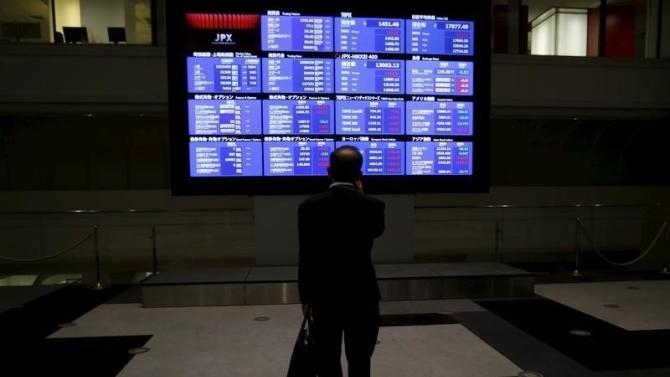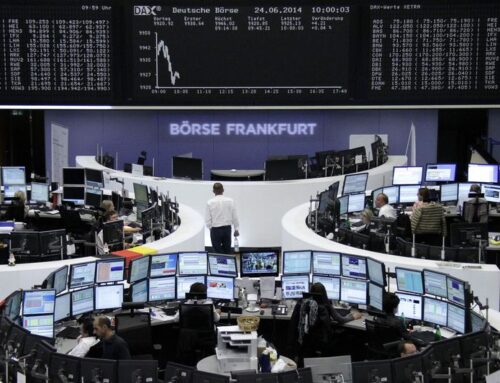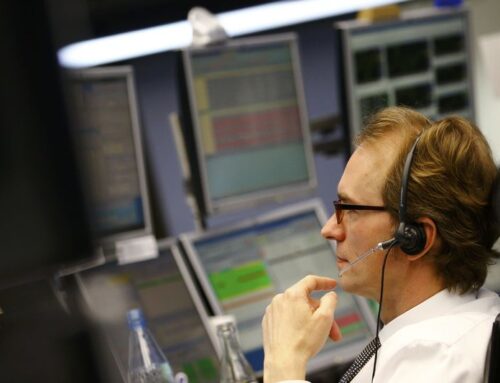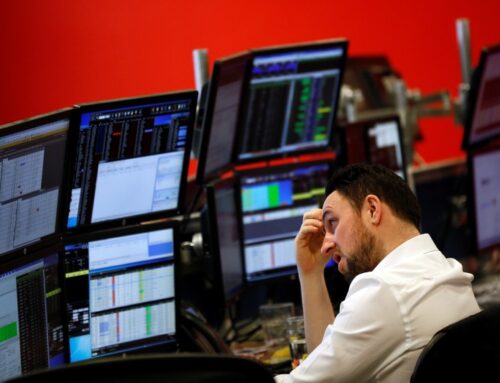Asian shares off to cautious start; China shares,...
November 29, 2015
By Hideyuki Sano
TOKYO (Reuters) – Asian shares were on edge on Monday after a sharp fall in Chinese markets in the previous session, while the euro hovered near seven-month low as the currency braced for the European Central Bank’s monetary easing later this week.
MSCI’s broadest index of Asia-Pacific shares outside Japan fell 0.3 percent as South Korean stocks fell 0.9 percent.
Japan’s Nikkei dropped 0.3 percent.
On Friday, the Shanghai Composite index and the CSI300 both fell more than 5 percent, registering their biggest one-day drops in more than three months on signs that the country’s securities regulator was clamping down anew on leveraged buying.
In addition, China also reported a 4.6 percent drop in profits among large industrial firms.
Investors are also focusing on the ECB’s policy decision on Thursday, with growing expectations that the ECB could cut interest rates by 20 basis points.
“The ECB is likely to announce more monetary stimulus at their policy meeting on Thursday, which should see EUR/USD end the week lower and generate a drag on AUD/USD,” said Richard Grace, chief currency and rates strategist at Commonwealth Bank.
The euro traded at $1.0593, little changed from where it was late last week. It had been as low as $1.0565 on Wednesday – a level not see since April.
“I think markets have almost priced in the ECB’s rate cut and like after its easing in March, the euro is likely to rebound rather than heading towards parity against the dollar,” said Tsuyoshi Shimizu, chief strategist at Mizuho Asset Management.
The prospects of an ECB easing also is putting pressure on the central bank of Switzerland, surrounded by euro zone countries, to take similar actions to stem any strengthening in the Swiss franc.
That pushed the franc to a five-year low of 1.0328 franc to the dollar on Friday. It last stood at 1.0302.
In contrast, the dollar is supported as the Federal Reserve is widely tipped to hike U.S. interest rates at its mid-December policy meeting. The dollar index rose to an eight-month high of 100.20.
The yen stood little changed 122.81 yen, showing little reaction after data showed Japan’s industrial output rose slightly less than expected in October.
The offshore Chinese yuan touched near 2 1/2-month lows of 6.4583 to the dollar on Friday and last stood at 6.4490.
The International Monetary Fund is expected to add the currency to its benchmark currency basket on Monday. Though analysts do not expect short-term impact, some analysts believe Beijing may allow the yuan to depreciate soon after its admission and may fell less pressure to push through promised reforms.
In commodities, gold licked wounds after Friday’s two percent fall that took it to a near six-year low. The yellow metal logged its sixth straight weekly decline on a firm U.S. dollar and prospects of a U.S. interest rate rise next month.
Gold fetched $1,058.20 per ounce, not far from Friday’s low of $1,053.50.
Oil prices were also lethargic after their falls on Friday. Global benchmark Brent futures stood flat at $44.85 per barrel.
(This story corrects first paragraph to show euro is at seven-month low, not high; corrects company name in 9th paragraph)
(Additional reporting by Ian Chua in Sydney; Editing by Kim Coghill
Search
RECENT PRESS RELEASES
Related Post






